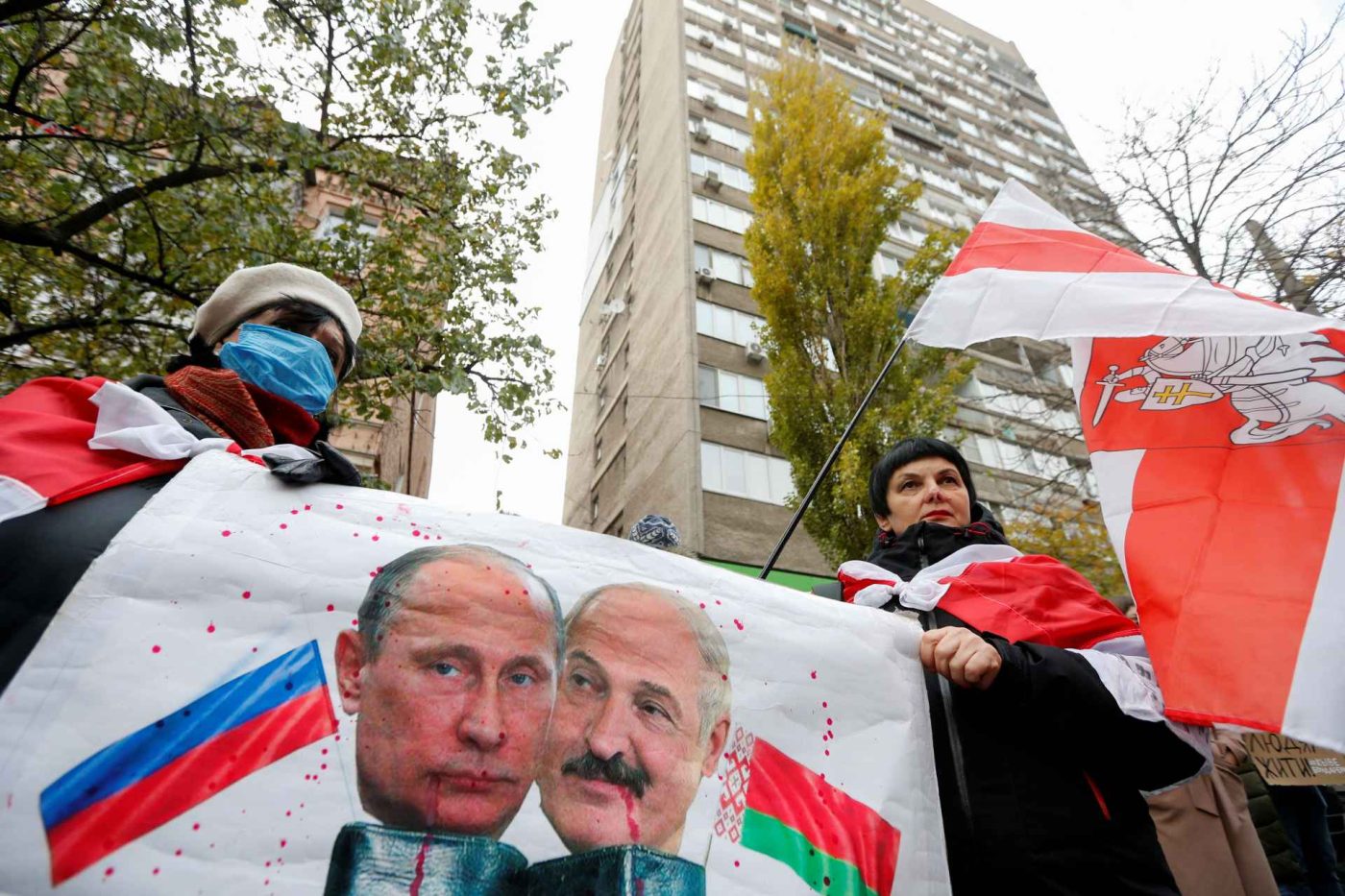Ukrainian intelligence has been confident Belarusian troops are unlikely to join Russia’s war of aggression and for good reason: Although Russia has forces in Belarus, and has used it as a launching pad since February, the combined Russian-Belarussian force there would not be enough to make any strategically meaningful gains.
Monitoring group Belaruski Hayun’s hasn’t reported any significant Russian-Belarusian troop buildup near the border, and a growing number of Kyiv’s residents are returning to their homes after fleeing in February, clearly seeing little likelihood of another northern attack.
Yet if Russia were to remove its Aliaksandr Lukashenka, who for years has been juggling the West and Russia with a strong inclination toward the latter, it would have full control over Ukraine’s northern border and direct access to Latvia, Lithuania, and Poland.
It might look like a quick gain for an imperialistic president who has so far embarrassingly failed in Ukraine, who could once again portray himself as a master strategist, now with direct access to the key Suwalki corridor, a think neck of NATO territory separating Kaliningrad from Belarus. Of course, such an act would carry grave risks — it’s unlikely Belarusians would accept such a move and Putin might simply open another disastrous front. But the all-out invasion of Ukraine was also a seemingly insane risk, and that didn’t deter the Russian leader.
Belarus represents a great prize for Putin’s geopolitical ambitions and Russians, the majority of whom support his criminal crusade according to official polls, would be presented with a new addition to Russkiy Mir, or Russian World.
Though Lukashenka now appears largely a puppet of the Russian president, it is only recently that Belarus has come so dangerously close to full Kremlin submission. The shift happened after the dictator’s theft of power from his democratic rival Sviatlana Tsikhanouskaya during the 2020 Belarusian presidential election. Faced with mass protests and at risk of losing power, he asked Putin for “security” assistance to suppress the largest rallies in post-perestroika Belarus. In return, Russia was allowed to station troops and other military assets in Belarus, including nuclear warheads.
Before then, Lukashenka occasionally enjoyed publicly rejecting and even criticizing Putin — a demonstration of his independence and ability to negotiate as a middleman. But now Belarus is more vulnerable than ever to a Kremlin takeover, with Lukashenka deeply reliant on the Kremlin for everything from gas to cash.
Lukashenka’s options are grim as he treads a tightrope.
At home, he faces the risk of Belarusians taking to the streets to finally oust him. Tsikhanouskaya, now in exile, has been campaigning in the West to seize on Lukashenka’s vulnerability. The fearful former farm manager has now introduced the death penalty for “terrorism,” a charge faced about:blank both by people opposed to the war in Ukraine and to his authoritarian regime. His military reforms meanwhile seem designed to shore up his dictatorship rather than ready his army for use in peer combat.
While the Belarusian army is around 45,000 strong, Lukashenka cannot count on its unswerving loyalty. Nearly 90% of Belarusians are opposed to Russia’s invasion of Ukraine, and a poll by Chatham House in March suggested only 3% supported their troops being involved. Just 16% backed Belarus territory being used for the invasion and Russian false flag operations designed to win support for the war have so far failed to change minds.
Even if a third of the Belarusian army are Lukashenka loyalists, they would likely be deployed first against the Ukrainians and the inevitable casualties would leave Lukashenka with an increasingly disloyal force, and even more vulnerable to Russia. Some Belarusian troops might even switch sides and join the ranks of Ukrainians, as a number of their compatriots already have.
Internationally, Lukashenka has been shunned and mocked for his authoritarian regime after he detained a dissident journalist from an international flight, instigated a migrant crisis, and allowed Russia to invade Ukraine from Belarusian territory. As a result, he has triggered sanctions against Belarus and provoked deep hatred from his southern neighbor.
In the face of high risk to his life and status, if he steps out of line, Lukashenka has been giving much of what he’s asked to his Russian counterpart. Without Belarus, Russia would have no strategic northern access point into Ukraine, which has given it marshaling areas, missile launch sites, and military airfields for its campaign.
Lukashenka’s options in negotiating with the West are also constrained. The US and United Nations reportedly offered to lift potash fertilizer sanctions if Belarus opened up the transit of Ukrainian grain by railway to Lithuania, but that would put him into direct conflict with Putin. Additionally, more than 90% of China-Europe rail freight goes through Belarus, giving leverage over the European Union, but at the same time, any threat to the corridor risks irritating China.
At least publicly, Lukashenka has said Putin will win his war against Ukraine, no matter how much military support Kyiv receives from the West. He may just be paying lip service to Putin, but so far his actions suggest he’s still siding with the Russian despot.
The West should offer Lukashenka a deal – either cooperate with the West, and benefit from a progressive lifting of sanctions, or continue down the current path and risk everything.
Cutting off Russia’s access to Ukraine via Belarus might well help to end Putin’s war. If Russia’s only committed Eastern European ally decided to withhold cooperation, it would demonstrate Putin’s weakness. That’s if he doesn’t act first.
Ilya Timtchenko is a Master of Public Policy candidate at the Harvard Kennedy School, a Belfer Young Leader Student Fellow at the Kennedy School’s Belfer Center as well as a Research Assistant for the Belfer Center’s Intelligence Project and The Future of Diplomacy Project. Ilya was the business editor at Kyiv Post from 2017-2019 working with the newspaper’s newsroom team which transferred to The Kyiv Independent.




